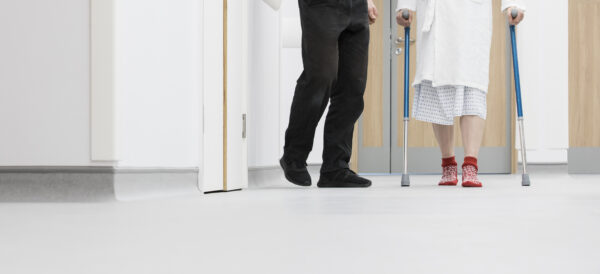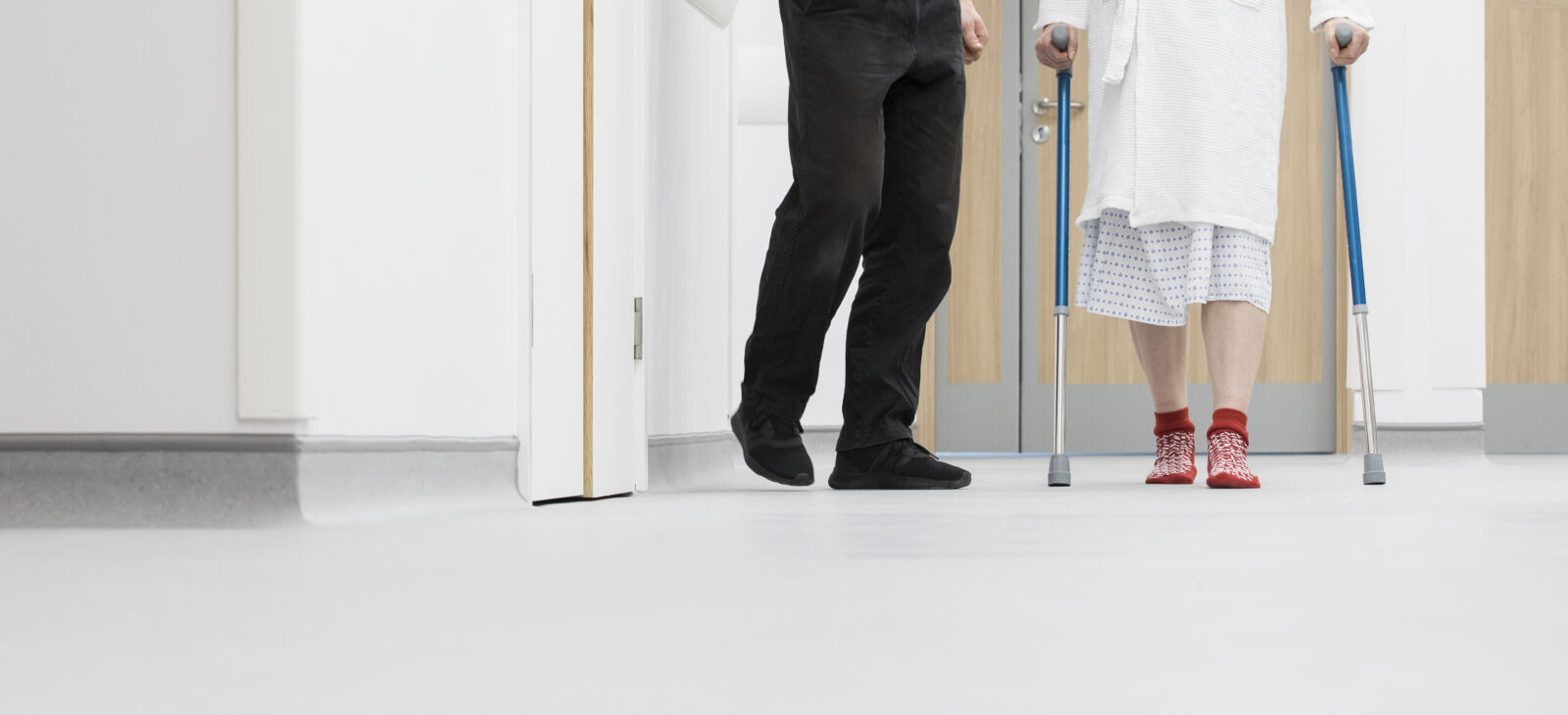Contact number: 020 7806 4060
What is Bunion Removal Surgery?
Bunion removal surgery involves correcting the misalignment of the bones in the foot that cause a bunion to form. The procedure typically includes:
- Removing the Bunion: Shaving down the bony lump at the joint.
- Realigning the Big Toe: Adjusting the position of the bones and securing them with screws, plates, or wires to restore normal alignment.
Bunions can cause pain, swelling, and difficulty wearing shoes or walking comfortably. Surgery is often recommended when non-surgical treatments, such as orthotics or footwear changes, have not provided sufficient relief.
Bunion Surgery at St John & St Elizabeth Hospital
At St John & St Elizabeth Hospital, we offer specialised bunion treatment with a focus on your individual needs and lasting relief. Our orthopaedic experts take the time to create a personalised plan to help you move comfortably again.
Why choose us for bunion removal surgery?
- Specialist Foot Surgeons: Our experienced orthopaedic consultants specialise in foot and ankle surgery.
- Patient-Centred Care: We take the time to understand how bunions are affecting your daily life, creating a treatment plan that prioritises your comfort and long-term mobility.
- Modern Facilities: Our hospital features advanced imaging and surgical technology, allowing for accurate diagnosis and precise bunion correction.
- Accessible Location: Based in NW8, we serve patients from Hampstead (NW3), Kilburn (NW6), and across London.
We are committed to helping you find relief from bunion pain and improving your quality of life.
How Much Does Private Bunion Removal Surgery Cost?
£5,015
Bunion Removal Surgery costs £5,015 at St John & St Elizabeth Hospital.
The price shown includes all costs associated with your treatment, from admission to discharge, but doesn’t include surgeon or anaesthetist fee.
Our hospital fee is guaranteed at the price quoted and valid for one month from the date issued, subject to pre-assessment.
How to pay for your treatment
If you’re… paying for yourself
Did you know you don’t need private medical insurance to come to St John & St Elizabeth Hospital? As a self-pay patient, you can access safe, outstanding quality health care at times to suit you.
For scans and tests, as well as to see most consultants, you’ll still need to be referred by a medical professional like your GP, but as a self-pay patient, the process is more straightforward. You won’t need authorisation from an insurance provider, and you’ll have greater choice of consultant and appointment times.
If you’re… insured
St John & St Elizabeth Hospital is approved by all major medical insurance companies. If you have a personal private health insurance policy, or your company provide it for you, you can use it to pay for your care from your initial consultation through to treatment, surgery and aftercare such as physiotherapy. Not all private health insurance plans cover the same things. It’s very important to check exactly what you are covered for with your insurance provider.
Frequently Asked Questions About Bunion Removal Surgery
St John & St Elizabeth Hospital is located in St John’s Wood (NW8), a well-connected area of North West London. We are conveniently accessible for patients from Hampstead (NW3), Kilburn (NW6), and beyond.
By Tube:
- St John’s Wood station (Jubilee Line) is just a 5-minute walk from the hospital.
- Finchley Road (NW3) and Kilburn stations (NW6) on the Jubilee Line provide excellent connections.
By Bus:
- Wellington Road: Routes 13, 46, 82, and 113 stop near St John’s Wood Underground Station, just a short walk from the hospital.
- Circus Road: Routes 46 and 187 stop close to the hospital’s Circus Road entrance.
- Abbey Road: Routes 139 and 189 stop near the junction where Grove End Road becomes Abbey Road, providing easy access.
Major Roads:
If you’re travelling from NW3 or NW6, major routes such as Finchley Road or Kilburn High Road offer a direct approach to the hospital.
Yes, it’s generally okay to live with bunions if they aren’t causing pain or affecting your mobility. However, if bunions lead to ongoing discomfort, swelling, or difficulty finding suitable footwear, it’s important to seek advice from a specialist to discuss treatment options.
Yes, bunion removal surgery can be highly beneficial for those experiencing persistent pain, difficulty walking, or trouble wearing shoes. The procedure corrects the misalignment, relieves discomfort, and improves mobility, helping you return to daily activities with greater comfort.
Recovery from bunion surgery typically takes 6 to 12 weeks. After a few weeks, most patients can bear weight on their feet, but full healing and a return to normal footwear can take up to 3 months.
Immediately after the minimally invasive bunion surgery, your orthopaedic surgeon will remind you of a few key things:
- Keep your leg raised where possible
- Keep the small incision scars clean from infection
- Avoid wearing ill-fitting shoes, high heels, or shoes for some time after the procedure
- Reach out to your orthopaedic surgeons and the team if there is any pain, the toe joint doesn’t remain in a straight position, or if another bony bump starts to form
The procedure is performed under anaesthesia, so you won’t feel pain during surgery. Mild discomfort, swelling, and bruising are common afterwards but can be managed with pain relief medication and rest.
While bunion surgery provides long-term correction, bunions can recur if the foot is subjected to pressure from ill-fitting shoes or certain activities. Wearing supportive footwear and following your surgeon’s advice can help reduce the risk.
Surgery is recommended when bunions cause significant pain, limit daily activities, or make it difficult to wear shoes comfortably. If non-surgical treatments like orthotics or wider footwear haven’t worked, surgery may be the best option.
A bunionectomy is typically recommended when a bunion (hallux valgus) becomes painful, causes difficulty in walking, or significantly impairs foot function, and conservative non-surgical treatments have not provided sufficient relief. If your consultant suggests the surgical route, and you have decided to go through with it, you’ll be asked to properly prepare.
Medically reviewed by Mr Aria Ghassemi - MBBS MRCS FRCS MSc Dip (Imperial College)


